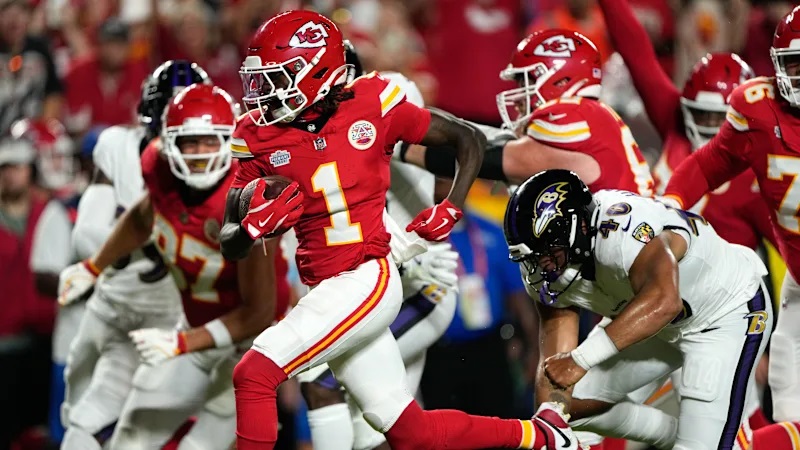NFL Opener Draws 48.9M Average Audience
The Kansas City Chiefs, Baltimore Ravens matchup reached a peak of 55.6M viewers, according to AdImpact

The ability of NFL football to attract large audiences in an era of declining viewing for linear TV was on full display in the NFL seasons opener, with an average 48.9 million viewers tuning in to watch Kansas City Chiefs score a narrow 27-20 victory over the Baltimore Ravens, according to AdImpact.
The rematch of last season’s AFC Championship Game reached a peak audience of 55.6 million viewers at 10:09 PM ET near the end of the first half.
The game aired on NBC, with traditional linear television receiving a 50% share of the total viewership, while YouTube and YouTube TV captured 16% of the audience. Other streaming platforms collectively held 34% of the viewership, AdImpact reported.
In an explanation of its methodology, AdImpact said that "the distinction between linear and non-linear content is based on whether it's viewed via a set-top box, direct cable connection, or antenna (linear) or through a TV native app or OTT streaming device (non-linear)." That would put the total viewing on all devices and all platforms of NBC's coverage of the game much higher than the 50% attributed to AdImpact's definition of linear TV.
The NFL Kickoff Game data was collected through AdImpact's Advanced TV panel of monitored Smart TVs, totaling 23 million TVs. This data includes viewing patterns and devices tracked using automated content recognition technology.
The professional video industry's #1 source for news, trends and product and tech information. Sign up below.
George Winslow is the senior content producer for TV Tech. He has written about the television, media and technology industries for nearly 30 years for such publications as Broadcasting & Cable, Multichannel News and TV Tech. Over the years, he has edited a number of magazines, including Multichannel News International and World Screen, and moderated panels at such major industry events as NAB and MIP TV. He has published two books and dozens of encyclopedia articles on such subjects as the media, New York City history and economics.

